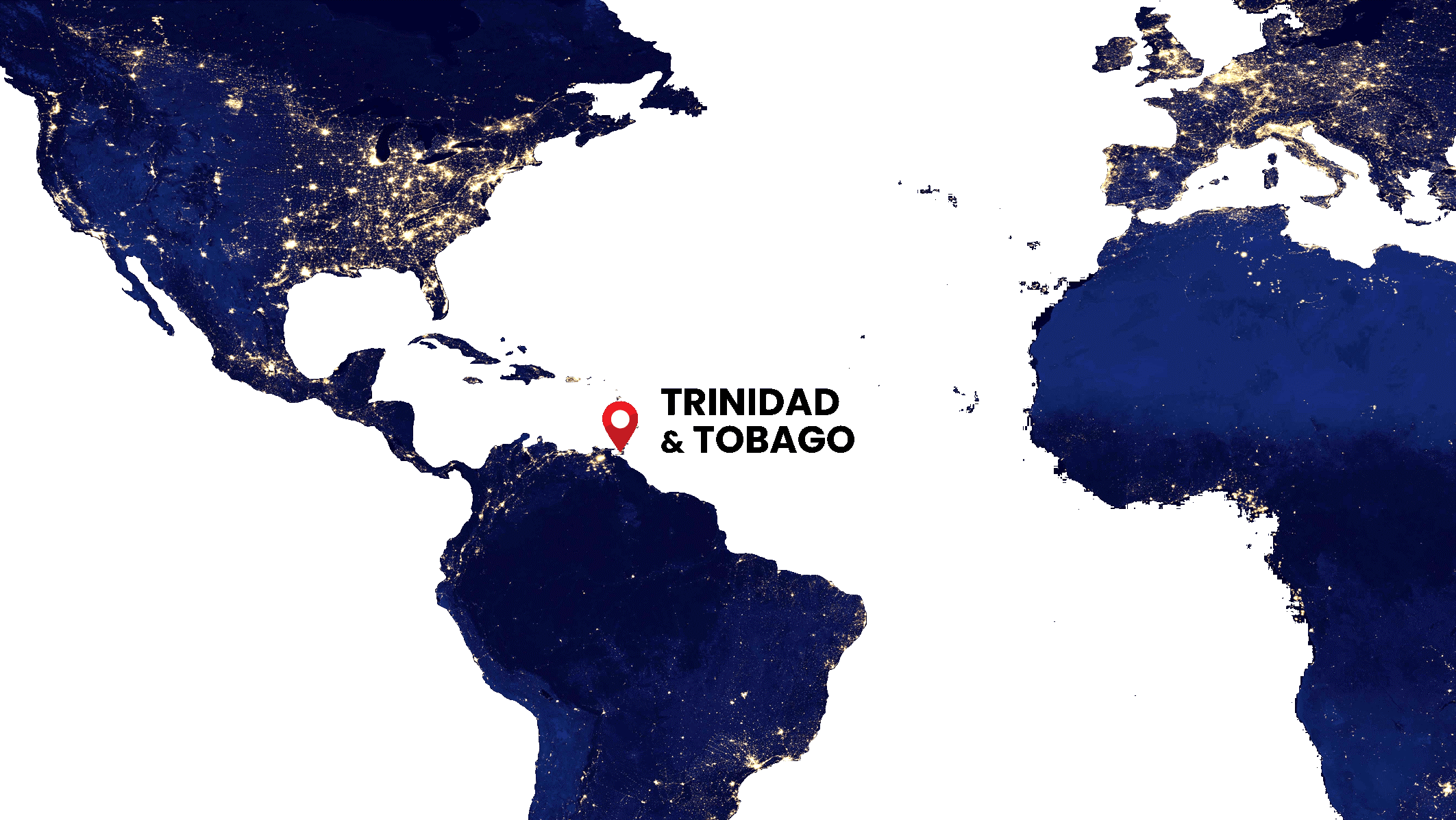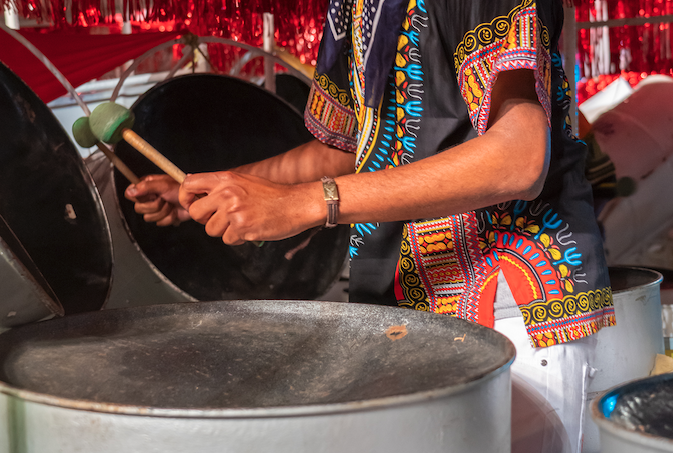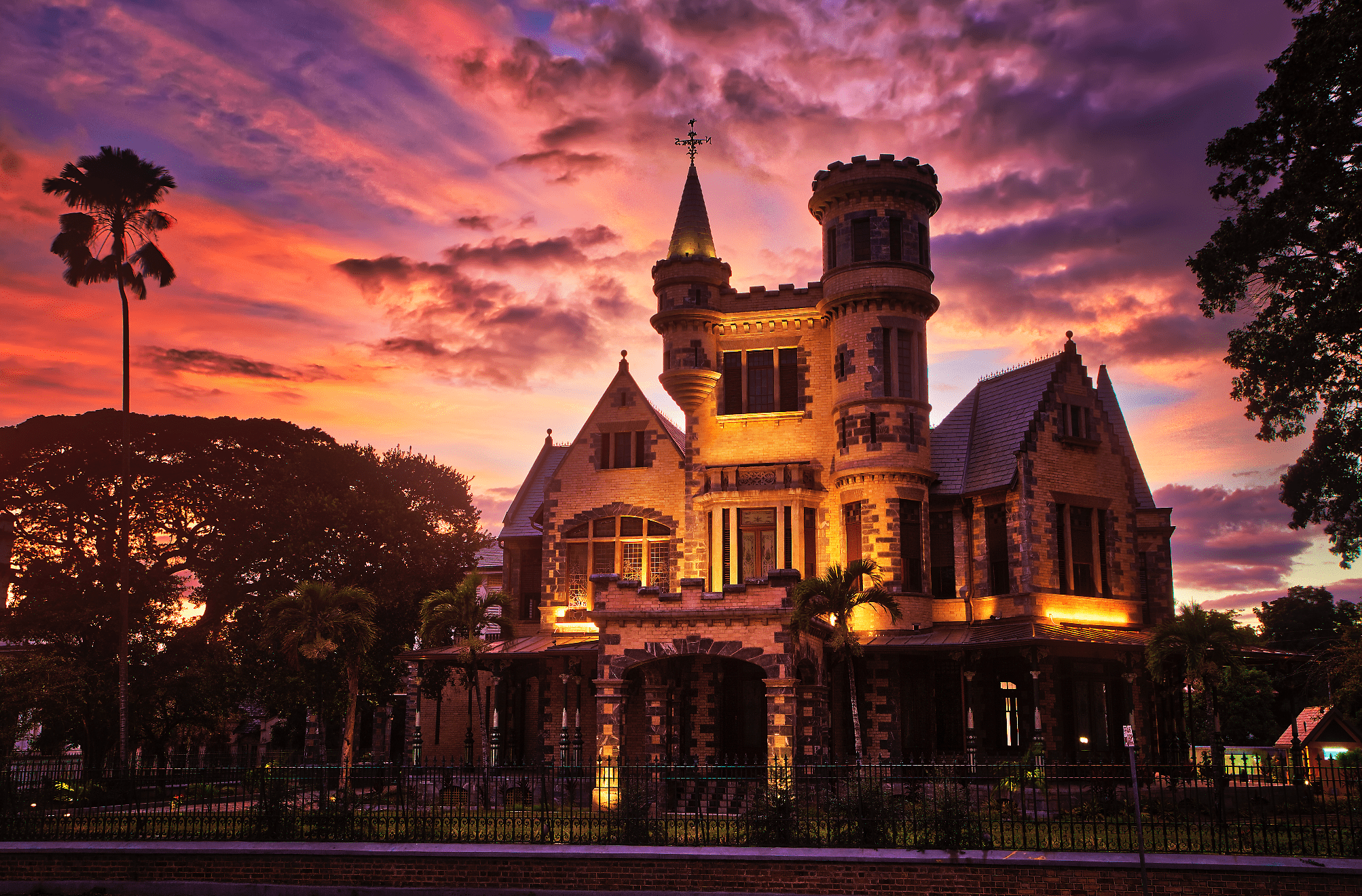GET TO KNOW OUR ISLAND
Welcome to a modern, cosmopolitan, naturally beautiful island. Trinidad is the most southerly island in the Caribbean Sea. It is one of the two islands that make up the Republic of Trinidad and Tobago, the other being Tobago. One of the things that makes us distinctively Trinidadian is the warmth and friendliness of our people. When you arrive at Trinidad you’ll know that you have arrived at the place that is always in season!
TRAVEL REQUIREMENTS
WEATHER

Trinidad & Tobago
CLOTHING
With a year-round temperature averaging between 22.7 to-31.3C / 75-92F, comfortable, light cotton clothing is recommended during your stay.
Long-sleeved shirts and long trousers are recommended as protection against mosquitoes during tours through the mangrove and rainforests. Dining in the evening is generally elegantly casual attire. Most places have a dress code in effect.
Military camouflage or camouflage clothing of any kind is illegal, reserved solely on the island for the military forces. Public nudity is also prohibited on the island.
TRINI KEEPSAKES
Take a piece of Trinidad back home with our unique souvenirs and mementos. These keepsakes might include items that capture the essence of Trinidad’s culture, natural beauty, and heritage. Some popular Trinidad keepsakes might include:
Steelpan Instruments: Trinidad and Tobago is famous for inventing the steelpan, a musical instrument made from oil drums. Miniature steel pan keychains or small decorative steel pans can be unique keepsakes.
Local Art and Crafts: Trinidad has a vibrant arts and crafts scene. You can find paintings, pottery, sculptures, and other handmade items created by local artistes as keepsakes.
Carnival Memorabilia: Trinidad’s Carnival is world-renowned. You might find Carnival-themed souvenirs such as masks, costumes, or miniature figurines representing Carnival dancers.
Local Spices and Seasonings: Trinidad is known for its spicy cuisine. You could bring back local spices, hot sauces, or seasoning blends as keepsakes for food enthusiasts.
Jewelry: Jewelry made from local gemstones or inspired by Trinidad’s natural beauty can make for beautiful keepsakes.
Rum: Trinidad is famous for its rum production. A bottle of Trinidadian rum or miniature rum bottles can be a memorable keepsake.
Local Music: CDs or digital downloads of Trinidadian music, especially genres like calypso or soca, can remind you of your visit.
Postcards and Prints: Collecting postcards or art prints featuring Trinidad’s landscapes or landmarks is a simple way to preserve memories.

A steelpan, Trinidad and Tobago's national instrument
NIGHTLIFE
Trinidadians take nightlife and entertainment seriously. Trinis are “Limers” and the word “Liming” is equivalent to ‘Hanging Out’ whether with one person or a group of friends. There is a multitude of roadside food and drink vendors, bars, nightclubs, lounges and VIP clubs with sizzling cocktails to keep you entertained all night. If the need for a concert, play or movie arises, you’re covered too.
WHEELCHAIR ACCESSIBLE SITES ON TOUR ROUTES
Brian Lara Promenade, Treasury Building, Woodford Square, National Academy for Performing Arts, Queen’s Park Savannah.
North Western: Chaguaramas Boardwalk, Chaguaramas Military, History and Aerospace Museum, UPickTT.
Eastern: Mount St. Benedict Monastery, UWI Campus, Pax Guesthouse, Mt. St. Benedict, St. Joseph.
Historical Sites: Killarney / (Stollmeyer’s Castle), Mille Fleurs, Angelo Bissessarsingh Heritage House, Angostura Distillery Tour.
Wheelchair Accessible Beach: Maracas Beach
Accessible Parkes and Sites: Royal Botanical Gardens, Nanan’s Caroni Bird Sanctuary Tours.
Bird Watching: Caroni Bird Sanctuary Tours.

Castle Killarney / Stollmeyer's Castle, one of the Magnificent Seven
SHOPPING
Movie Towne: Movie Towne in Port of Spain, Trinidad, is a bustling hub for entertainment. It offers a variety of activities including movies, dining, and shopping, making it a popular destination for both locals and tourists.
Shopping Centres & Malls: The large shopping centres of Trinidad are in the capital city Port-of-Spain, the City of San Fernando and the Borough of Chaguanas. Shopping malls are also located in areas such as Valsayn, Trincity, West Mall, St. James, Sangre Grande and Arima.
Markets & Artisans: A visit to the market or markets in the inner cities provides an ambiance of lively trade where an abundance of fresh vegetables, fruit, meat, fish and other locally produced items are on offer. Across the island are several Green Markets and Farmers’ markets. The San Antonio Green Market is another popular spot and is nestled in the Santa Cruz Valley. An array of locally produced items and haberdashery items are available, as well as handmade jewellery– whether from natural materials such as wood and pearls or from gold and silver. All of which can also be used as beautiful souvenirs. Click here to discover unique artisans from the Trinidad and Tobago Craft Entrepreneur Network.
Downtown: Downtown Port-of-Spain is the bustling heart of Trinidad and Tobago’s capital city, offering a mix of historical and modern elements, Caribbean culture, commerce, and entertainment. Visitors can explore historic landmarks, government buildings, cultural attractions, shopping and dining, and enjoy the waterfront view.
Locally-made wine / Photo Credit: Damian Luk Pat
ELECTRICITY
Electrical outlets in Trinidad and Tobago supply electricity between 110/220 volts. Standard two-prong plugs can be used, however; it is advisable to travel with an adapter as a precautionary measure. Adapters can also be purchased at local electronic stores.
TIMEZONE
Trinidad and Tobago are on AST – Atlantic Standard Time / Atlantic Time (Standard Time).
The country does not observe Daylight Savings Time, which means that the country is 5-hrs behind UTC/GMT in the summer and 4-hrs behind UTC/GMT in the winter.
CURRENCY
The local currency is the Trinidad and Tobago dollar. US dollars are widely accepted at an approximate rate of TT$6.8 to US$1. You can find rate information at local banks, or the daily newspapers. Euro and the Pound Sterling (GBP) are not as widely accepted as US dollars. International credit cards are accepted at most hotels, restaurants and malls. However, travellers’ cheques are not accepted. ATMs are also widely available, but bank fees will apply. Applicable taxes are as follows: Value Added Tax (VAT) 12.5%, 10% hotel taxes and 10% service charge.
TELECOMMUNICATIONS
The international code for Trinidad is + 1-868, followed by the seven-digit phone number. There are two primary telecommunications service providers:
- Bmobile
- Digicel
It is advisable to check with your local service provider to find out more about the cost of international roaming. Wi-Fi is widely available at hotels, restaurants and shopping centres and at various hotspots throughout the island. Free Wi-Fi access is available in bzone areas across the island. To register for bzone Wi-Fi access, click here.
SAFETY
We wish you an enjoyable stay and as with any trip away from home you are advised to take the necessary precautions to make your experience a truly memorable one. Please keep in mind the following general safety suggestions:
- Comply with all laws and respect local customs.
- Be sure to drive on the left side of the road and heed all traffic signals and warnings.
- Avoid hitchhiking and/or picking up hitchhikers.
- Remain alert, trust your instincts, and pay attention to your surroundings. Report any suspicious activities to the police.
- Avoid leaving bags, cameras, and valuables unattended.
- Avoid carrying large amounts of cash and expensive jewellery and placing cameras round your necks. Avoid leaving similar items in full view in your vehicle.
- Use appropriate banks and cambios for all foreign exchange transactions.
Should your passport, credit card or Traveller’s cheques be lost or stolen, report it immediately to the police and your banking agent. Call 999 for the nearest police station. - Avoid excessive consumption of alcohol.
- Avoid isolated areas after dark.
- Purchase food and beverages from vendors with valid food badges.
- When on the beach, follow the advice of the lifeguards. They are trained in beach and water safety.
- Store expensive items in your hotel safe.
- Lock cars at all times.
- Use an official tour guide for excursions.
- Licensed taxis have a number plate that begin with ‘H.’
- Ask your hotel reception/tourist office representative for assistance.
LANGUAGE
English is the official language of Trinidad, however we do have a unique creative dialect which is often spoken informally.

